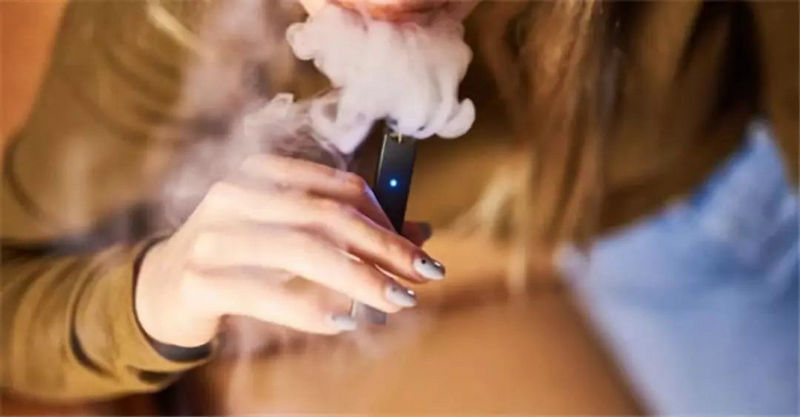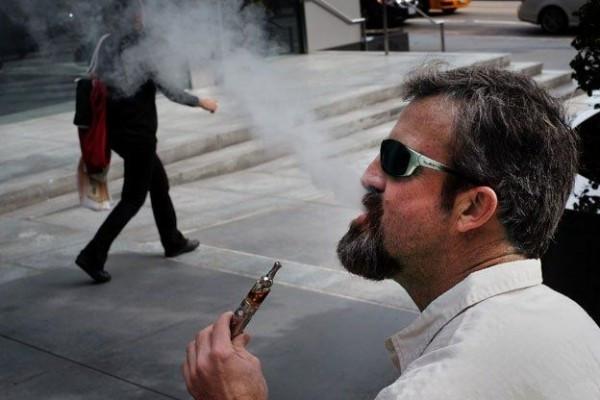In business, I'm afraid to give customers an unprofessional impression. When a customer asks you about a professional word in an industry, you answer incoherently, and even the customer knows more than you do. How can you make the customer believe you. You may not have a professional background, but you must be professional in your industry. At this moment, ask yourself, have you done it?
Today, Jack will share with you eight "technical terms" in the e-cigarette industry. If you don't understand them, do you still dare to mix with this industry? Pack up your things and leave as soon as possible.

NTP, the abbreviation of new tobacco product, is translated as "new tobacco products" or "new tobacco products". At present, new tobacco products mainly include e-cigarette, heating non combustion tobacco products and smoke-free tobacco products. Among them, the first two kinds of products produce smoke in the process of suction, so they are classified as atomization products. Smokeless tobacco products include chewing tobacco and snuff (divided into dry snuff and wet snuff, the latter also known as mouth smoke).
HNB, the abbreviation of heating not burn, is translated as "heating not burn" or "heating not burn", which refers to heating not burning tobacco products. At present, the heating and non burning tobacco products on the market mainly include international tobacco giants, such as Japan Tobacco ploom, British American Tobacco glo, American Reno tobacco Revo, Korean KT & G company lil, etc. Domestic tobacco companies, such as Yunnan Zhongyan MC, Sichuan Zhongyan Kuanzhai + kungfu, Guangdong Zhongyan Mu + ing, Hubei Zhongyan Mok + coo, Anhui Zhongyan too zero, Hunan Zhongyan U-sonic, Heilongjiang Zhongyan lopato, etc. Traditional e-cigarette enterprises, such as avibati technology avbad series, etc.
Iqos, short for I quit original smoking, translates as "I give up traditional tobacco" or "I quit smoking.". Iqos is a representative product of heating and non burning tobacco products. It is an epoch-making product in the field of new tobacco. It is developed and designed by Philip Morris International Inc. (PM), the world's largest tobacco company.
An abbreviation for vape, vapor or vaporize. Internationally, vape is the general name of e-cigarettes. Because it can literally distinguish electronic cigarette from cigarette, the whole e-cigarette industry tends to use it. In 2014, vape was rated as the "hot word of the year" by Oxford dictionary. Up to now, there has not been a completely equivalent word in Chinese, but now the electronic cigarette is also called electronic atomizer, steam cigarette and steam stick. The extension words related to vape include vaping (a behavior of smoking e-cigarettes) and vaper (all users of e-cigarettes, including novices and players).
Pod, translated as "separation chamber", refers to small smoke. Small smoke is divided into closed replaceable small smoke, closed disposable small smoke and open oiled small smoke. At present, small cigarettes have replaced big cigarettes and become the mainstream products in the market. Juul, known as the originator of small cigarettes, is the e-cigarette brand of Juul labs, an e-cigarette manufacturer in San Francisco. At the beginning of 2018, Juul labs separated the steam cigarette company Pax labs and became the top e-cigarette manufacturer in the market. Since then, Juul has focused on cigarette alternatives, while Pax has focused on mixing nicotine with various plants.

E-liquid is the abbreviation of electronic liquid. Another written expression is e-justice. The electronic cigarette oil is also called electronic atomizing liquid. At present, the taste of electronic cigarette oil on the market mainly includes seven categories, such as fruit, health care, tobacco, beverage, milk, food and herbal medicine. Brands of electronic cigarette oil include imported and domestic brands. Imports mainly come from the United States, Canada, the Philippines, Malaysia, France, the United Kingdom, Germany and so on. Domestic products are mainly concentrated in Shenzhen, China.
Nicotine, translated as "nicotine", commonly known as nicotine, is an alkaloid existing in Solanaceae (Solanaceae). It is also an important component of tobacco and a representative of n-cholinergic receptor agonist. It has effects on N1 and N2 receptors and central nervous system, and has no clinical application value. Nicotine can make people addicted or dependent. Repeated use of nicotine can also increase heart speed, raise blood pressure and reduce appetite. Large doses of nicotine can cause vomiting and nausea, which can lead to death in severe cases. At present, most electronic cigarette oils on the market contain a certain amount of nicotine, and some do not.
Nicotine salts, translated as "nicotine salts", is a kind of crystal formed by the reaction of free nicotine free base with organic salts. The final use of this crystal, or to be mixed with propylene glycol or glycerol to form a proportion of the solution, generally 100mg / ml. Its biggest advantage is that higher nicotine content can be more easily inhaled by human blood, without having to be like free radical nicotine oil. High nicotine content will cause unacceptable choking sensation. Nicotine salts, the first used by Pax labs, make nicotine more stable by adding certain acids. It is considered to be more effective in helping smokers to quit smoking than the traditional free alkali smoke oil. At present, nicotine salt is mainly used in small tobacco products.

CBD, the abbreviation of cannabidiol, is translated as cannabinol. Cannabinol is the main chemical component in cannabis, and it is a non addictive component in cannabis. Cannabinoid (CBD) is the main non psychoactive ingredient in industrial hemp. It can relieve inflammation, convulsion and anxiety, pain and vomiting in medicine, and has significant effect in anti depression, anti epilepsy, anti-cancer, analgesic and sedation. CBD is a kind of compound found in hemp plant, which can be extracted from hemp or industrial hemp and processed into food, medicine or cigarette oil for e-cigarettes. At present, there are about 33 states in Australia, Ireland, the United States, Canada, Israel, Uruguay, Germany, South Korea, Thailand and the United Kingdom in the global CBD open medical market. In Chinese mainland, CBD is not allowed to import and manufacture privately. Only the manufacturers approved by the state can manufacture CBD related products. At the same time, no manufacturer in China has the license to produce CBD gasoline.

Roy·Luo:+86-13423726653
Tel: +86-0755-23723725
E-mail:Roy.luo@szyootech.com
Address: B705-706,Floor 7,No.3, Xinyu Road,Xinqiao Community,Xinqiao Street,Bao'an District, Shenzhen